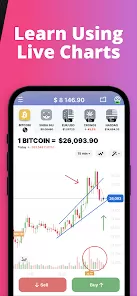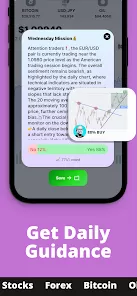What is Forex Trading for Beginners
Forex trading, also known as foreign exchange trading, involves buying and selling currencies on the global market to earn profits from fluctuating exchange rates. For beginners, it represents an opportunity to participate in one of the largest financial markets in the world, operating 24 hours a day across different time zones. Forex trading requires understanding currency pairs, market analysis, and risk management. New traders can start with demo accounts to practice strategies without financial risk. While Forex offers high liquidity and potential profits, beginners must approach it with caution, patience, and proper education to avoid significant losses.
Pros and Cons
- Pros:
- High liquidity allows easy entry and exit of trades.
- 24-hour market access enables trading at any time.
- Potential for profit in both rising and falling markets.
- Access to leverage increases trading capacity.
- Low transaction costs compared to other markets.
- Ability to start with demo accounts for practice.
- Variety of trading platforms and tools for analysis.
- Cons:
- High volatility can result in significant losses.
- Leverage can amplify both gains and losses.
- Requires strong discipline and risk management skills.
- Complex for beginners without proper education.
- Emotional trading may lead to poor decision-making.
- Market manipulation and scams may exist in unregulated brokers.
Key Features
- Currency pairs trading, including major, minor, and exotic pairs.
- Leverage options to increase trading power.
- Technical analysis tools like charts, indicators, and trend lines.
- Fundamental analysis based on economic news and events.
- Demo accounts to practice strategies without risk.
- Stop-loss and take-profit orders to manage risk.
- Automated trading options through expert advisors or bots.
- 24/5 trading hours for most currency pairs.
- Access to online Forex communities, educational materials, and market updates.
Functions
- Buy and sell currencies to profit from exchange rate changes.
- Analyze market trends using technical and fundamental analysis.
- Use leverage responsibly to increase potential returns.
- Place orders like market orders, limit orders, and stop-loss orders.
- Track trading performance and maintain a trading journal.
- Utilize demo accounts to develop and test trading strategies.
- Stay updated with global economic news and market events.
- Manage risk through diversified trading strategies and capital allocation.
How to Start Forex Trading for Beginners
- Choose a reputable and regulated Forex broker.
- Create a trading account and verify your identity.
- Start with a demo account to practice without risking real money.
- Learn the basics of currency pairs, leverage, and trading terminology.
- Develop a trading plan with defined goals and risk management rules.
- Use technical and fundamental analysis to identify potential trades.
- Place small trades initially to minimize risk.
- Keep a trading journal to track decisions and performance.
- Gradually increase trade size and complexity as you gain experience.
- Continuously educate yourself and stay updated with market news.












 0
0 



